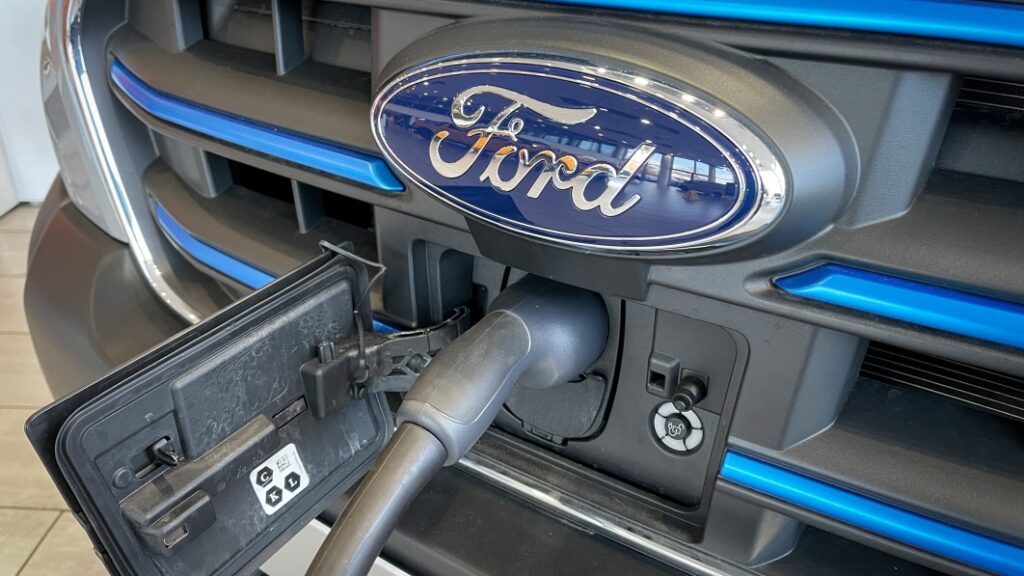Ford posts $1.76B 1Q profit largely on gas-powered vehicles

DETROIT — Ford Motor Co. made $1.76 billion last quarter, swinging into the black from a $3.1 billion net loss for the same period a year ago.
(The first-quarter loss last year was due mainly to a drop in valuation of Ford’s investment in electric vehicle startup Rivian.)
Excluding one-time items, Ford made 44 cents per share. That beat Wall Street estimates of 42 cents, according to FactSet.
Revenue rose 20% to $41.74 billion, soundly beating the $39.25 billion that analysts expected.
Ford reaffirmed its earlier pretax profit guidance for the full year of $9 billion to $11 billion.
Ford lost $722 million before taxes on its electric vehicles, but it made $2.62 billion on internal combustion vehicles. The company’s commercial vehicle unit added $1.37 billion to the pretax profits. Ford lost more than $60,000 per electric vehicle sold in the first quarter. Its combustion-vehicle business, Ford Blue, averaged pretax profit of $3,715 a vehicle, while the Ford Pro commercial business earned $4,053 per vehicle, based on the company’s financial data
The company’s profits were fueled largely by sales in the U.S., its most lucrative market. Ford sold just under 472,000 vehicles from January through March, up 9.9% from the previous year.
The company continued to get strong prices for its vehicles during the quarter, driven by loaded out trucks and big SUVs. Ford’s average sale price was $56,534, according to Edmunds.
Earlier Tuesday, Ford cut prices on its Mustang Mach E electric SUV, the same day Tesla raised prices slightly on the Model Y, the Mach E’s main competitor. Ford also said it is reopening the order bank on Wednesday for the Mach E after upgrading a factory in Mexico to increase output. Automakers have been able to scale up production and get vehicles to dealers on time after being pinned down by shortages of semiconductors and other parts in 2022.
Shares were down 1% in after-hours trading.
Ford cautioned that “higher industrywide customer incentives as vehicle supply-and-demand rebalances” will be a “headwind” for profitability.
Includes Reuters







